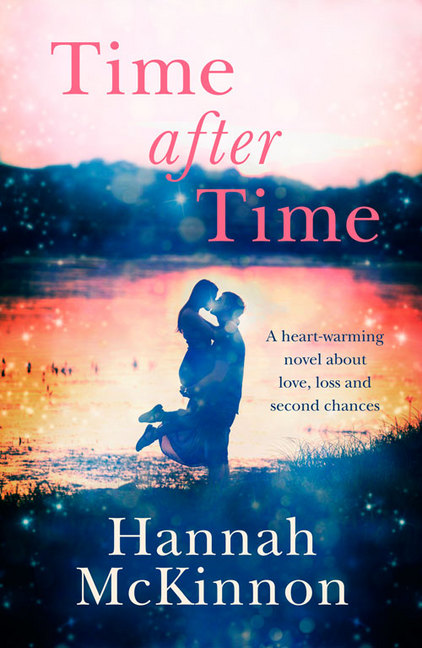Note: Don't ever miss a post on Quick Brown Fox. Fill in your email in the box
to the right under my bio and get each post delivered to your Inbox. Also, if
you’re not yet on my newsletter, send me an email, including your locale,
to: brianhenry@sympatico.ca ~ Brian
Amethyst Arsenic is an online
publisher of poetry, art, and music. Currently seeking material for the spring issue. Pays
$10; featured poet receives $50 U.S.
Deadline: March 31, 2017. Guidelines here.
Orford Parish Books specializes in the unsettling, the
weird, the subtly troubling – short fiction, illustrated books for strange
children, themed chapbooks, fake newspapers. “We don’t do it for a living; we
do it because it’s too hard to start a cult.”
Orford Parish is currently seeking
submissions for an anthology of New England Folk Horror. Pays $75 U.S.
Deadline:
March 31, 2017. Guidelines here.
The Caledon Public Library is sponsoring Short Story, Poetry, and Photography
contests.
Get published & win money, using the theme Celebrating Canada 150.
Short story Contest categories:
Adult
18+ years, maximum word count 1500 words
Teen
(Elizabeth Scavetta Memorial Teen Short Story) 13 - 17 years, maximum word
count 1500 words
Children
9 -12 years, maximum word count 750 words
Children
6 - 8 years, maximum word count 500 words
Prizes: 1st place $100, 2nd
place $75, 3rd place $50
Deadline: March 31, 2017
Poetry Contest categories:
Adult
18+ years
Teen
13 - 17 years
Prizes: 1st place $100, 2nd
place $75, 3rd place $50
Deadline: April 20, 2107
Photography Contest categories:
Adult 18+ years
Teen
13 - 17 years
Children
6 - 12 years
Prizes: 1st place $100, 2nd
place $75, 3rd place $50
Deadline: September 2, 2017
Guidelines for all three
contests here.
Hi, Brian.
You're hearing it here first. I'll be
editing a new speculative anthology for Exile Editions. I'm attaching the guidelines for Alice Unbound. Submissions
open Feb 1. Feel free to spread the word.
Colleen Anderson
Alice
Unbound
Lewis
Carroll explored childlike wonder and the bewildering realm of adult rules and
status, which clashed in bizarre ways. Many characters in his tales are
anthropomorphic, whether talking cards, crying mock turtles or saucy Tiger
Lilies. Over 150 years later, people still recognize characters from Carroll's
works. Who doesn’t know of vorpel blades and mimbly borogroves? There is the
same madcap imagination in the fantastic that has allowed fairy tales to endure
through centuries. These characters resonate in a primal part of the human
psyche, harkening to the mysticism and mystery of the ancient world, when it
was unclear how the rain fell, or the seasons changed, or whether a person was
separate from an animal or could become one.

Centuries
passed and myth became fairy tales, evolving to resonate with each era, showing
the triumphs of the common man, the humble and generous woman who outsmarts
tempters, jailers, and evil stepmothers, or the trials and tribulations of
seeking the unknown. Carroll's characters took a jump forward, not just
following the regular metamorphosis of an age-old fairy tale, but leaping off
the cliff of the familiar into something altogether new, different and
endearing. We might not truly want to live in the world of Alice or have to
deal with mad queens and bandersnatches, but what if that Wonderland ceased to
exist and melded with our modern world? How would these characters fit in, and
what would they bring or change? Are we ready to accept Alice Unbound into our
hearts and let the Jabberwock in the back door?
Alice in Wonderland was Carroll’s (Dodson’s) most famous work but there are other stories
and poems, such as the Jabberwock, the Walrus
and the Carpenter, or the Snark. For Alice Unbound, I don’t want to see
rehashings of Carroll’s tales but characters in a modern or slightly futuristic
world. I've seen many of the Alice movies and shows and don’t want a retelling
of those scripts. These stories should go farther than the rabbit hole. I will
consider a few very select poems, but they will need to have a storyline and
not just an observation or an image.
These are examples only but not requirements:
·
The
Red Queen pops through; what happens to her and those in her environment in
Winnipeg when she decides to lobby for a longer hunting season?
·
The caterpillar is the owner of a medical
marijuana store and he refuses to give an ailing person medication.
·
Tweedle
Dee and Tweedle Dum have a falling out because one wants to get fit and stop
dressing like a twin.
·
The Jabberwock was once
a friendly sort. What caused him to go bad?
·
The mock turtle
campaigns for animal rights by doing stand-up comedy.
Whether Alice, the mock turtle or Tweedle Dee and Tweedle Dum, use these
elements and characters to show more worlds and characters through the looking
glass. Stories must have a conflict and should fall under the speculative
umbrella, such as dark, fabulist, weird, fantasty, SF, steampunk. QUILTBAG and
people of colour as characters are encouraged as well as stories from any
Canadian. Alice doesn’t have to be white and blonde. Go beyond Alice in every
way.
Pays 5 cents /word
Length: 2,000-5,000 words. Minimum 1,000 words.
Submission window: Feb. 1 to May 31. Full guidelines here.
See Brian Henry’s schedule here, including writing
workshops and creative writing courses in Algonquin
Park, Bolton, Barrie, Brampton, Burlington, Caledon, Georgetown,
Guelph, Hamilton, Kingston, Kitchener, London, Midland, Mississauga, Newmarket,
Oakville, Ottawa, Peterborough, St. Catharines, St. John, NB, Sudbury,
Thessalon, Toronto, Windsor, Woodstock, Halton, Kitchener-Waterloo, Muskoka,
Peel, Simcoe, York Region, the GTA, Ontario and beyond.
Navigating tip: For more paying
markets, go to the Labels for this posting listed below and
click on Paying Markets, or Best Paying Markets. In the list of Labels, you’ll
also find a links to various other collections of postings.












